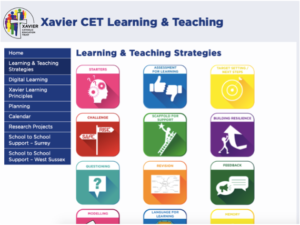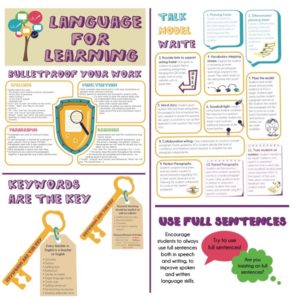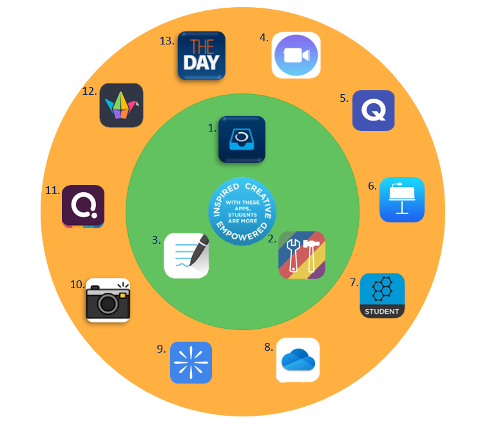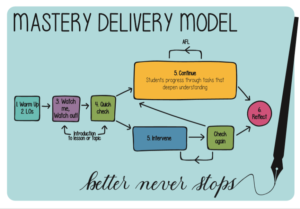REPORTS
Anna Dwyer, Deputy Head, will lead and co-ordinate the reports to parents. You can enter data from any computer with an internet connection using Arbor. Your Curriculum Leader will talk you through the various elements and ensure that you are able to enter the grades on to Arbor.
It is important that the information that goes to parents is as relevant and up-to-date as possible. This means there is a tight turnaround which is only possible because everyone keeps to the deadlines – thank you in advance for this.
The reports are important as they mark the progress of each student, allowing students, parents and the school to celebrate or provide extra support and ‘motivation’ as required. In order to do this, we collect a variety of information.
The monitoring schedule can be viewed on the academic planner (select tab) it will also be emailed out in September. The Skills, Homework and Behaviour Matrix should be used carefully. More guidance on the key aspects can be found below.
KEY STAGE 3 PROGRESS
Every KS3 student is given a baseline learning path for each subject (Emerging, Secure, Deepening, Mastering). Students should not be told their baseline as we do not wish to limit students, it is available to teachers for planning purposes only. All students are striving for excellence and should be made aware of the progress they are making over time (see below), given constant feedback on how to improve and opportunities to demonstrate their progress.
Progress should be gauged relative to their baseline when reported on the monitoring and should reflect the level of progress since their last round of monitoring. The 4 options are:
- Less than Expected Progress
- Expected
- Good
- Exceptional
Please make sure you use your professional judgement (this is the most important thing!) and think carefully about each individual and the progress they have made since the last round of monitoring.
Once per year following on from the whole school exams we will send home the “Exam Learning Path” which is the learning path that the student achieved in their exam. At this point we will also collect “Current Learning Path” which is the learning path that the student is currently working within.
CURRENT PREDICTED GRADE (KS4 & KS5)
This is the grade that you think an individual will achieve if they continue working as they are until they sit their final exam. The grade must be an accurate reflection of what the student will go on and achieve if they continue working as they are, it must not be used as a ‘kick’ or a ‘cuddle’. Only by collecting accurate information can we best support the students.
SKILLS FOR LEARNING, HOMEWORK & BEHAVIOUR GRADING
Please think carefully about the grade that you give each student for his or her skills for learning, homework and behaviour for learning. The descriptors of these three measures can be found on the next page.
A few points that you must consider when completing the monitoring and also student report cards at the end of lessons:
- What constitutes ‘a good skills for learning grade’ will vary from student to student. For some students a C grade is brilliant, for others this will be poor and they can do better. It is always worth taking 5 minutes to either discuss the skills for learning grading with a whole class or with certain individuals as the monitoring is being completed so that they understand why they have been given a certain grade and whether it is a ‘good’ grade for them or whether they should be achieving more.
- A good way of approaching the monitoring is to consider a student to be a ‘C2’ when they first walked into your classroom in September (ie. a fresh start). They then need to impress you to move up to a B2, B1 etc. or fall short of expectations and move to a C3 etc.
- The ‘A1’ really should be reserved for the very best students. It requires them to be going above and beyond both in and out of the classroom – it’s really important that the ‘A’ for skills for learning is reserved for those who truly do extend their learning outside of the classroom (they need to have had opportunities to demonstrate this)
- An ‘A1’ student cannot be given less than expected progress (ie. -1)… it is counter intuitive! You’re essentially saying that they are doing everything they can both in and out of the classroom and yet still they aren’t making the progress you’d expect of them… the deduction for parents will be ‘well in which case you aren’t teaching them properly’ and this simply won’t be the case!
- CLss/HOYs and parents should already be aware of any student being given a grade 4 for behaviour as it implies there has been a succession of poor choices resulting in after school detentions and phone calls home.
- KS3 progress grading should be based on the progress they have made since the last round of monitoring. Teachers should be using their professional judgement to look at the wholistic picture rather than basing it off one test result. A good rule of thumb is to ask yourself “given everything I know about child X, are they on track and making the progress the that I would expect of them”. If the answer is “no” then they are making “less than expected progress”, if the answer is “yes” then you need to decide whether they are just making “expected progress” or whether their trajectory is accelerated, in which case you need to consider “good progress” or “exceptional progress”.
- Current predicted grades are the grade you believe the student will achieve at the end of Year 11/13 if they continue working as they are – they should be as accurate as possible as this is the only way that CLs/HOYs can accurately work out who needs intervention. Do not use predicted grades to give a kick or a cuddle, they need to be accurate!
It is important that the students know how they are working day-to-day, particularly if they are not meeting your expectations.
- If you are planning on giving a student a behaviour for learning grade 3/4 – Have you talked to them about it already? Have you tried a variety of rewards/sanctions? Are the parents aware that their child’s behaviour is not good enough? Have you mentioned the issues to your Curriculum Lead?
- If you are planning on giving a student a skills for learning grade D… Have you talked to parents about their child’s learning skills / homework? Have you raised your concerns with the Head of Year?
PASTORAL / DEPARTMENT REPORTS
Students who receive grades D or 4, or a significant number of grade 3s will be picked up by the Head of Year and placed on pastoral report. You will be notified of students who are on report in your classes or form group following on from a round of monitoring. Students should hand you their report at the start of the lesson. Please be consistent with your grading using the descriptors given. If you give a grade D (or C if it is a student who should be working at a higher skills for learning grade), or a grade 3/4 for behaviour please sanction the students appropriate. They will also be sanctioned by the HOY – the double whammy just helps them learn faster!
Students who receive grades D, 3 or 4 in one subject only should be picked up by the CL and put on subject report.
Students who receive a large number of C grades may be put on report if the HOY feels that they should be working at a higher skill level.






